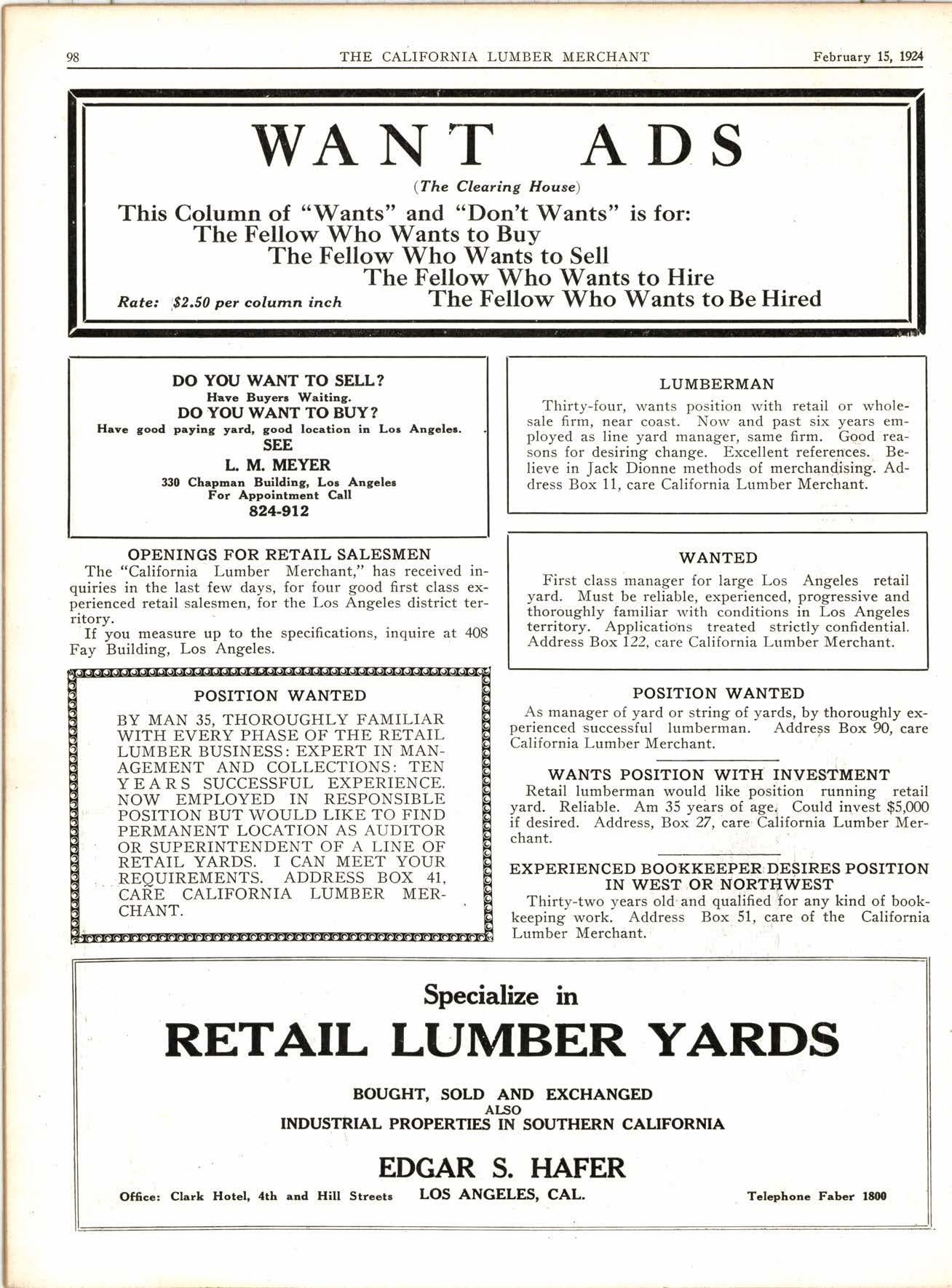
1 minute read
Cash or Credit Friends or Foes
It is not an uncommon thing for the Sales and Credit Departments in the average organization to ',mix things,', -whenever the occasion presents itself. To thc Salesman, the Credit Man is a demon who lurks in his cave until he hears that some particularly good sale is about to be pulled off, when he dashes out, kills off the business arbttrarily and then returns to lie in wait for the next opportunity.
Such an attitude is simply the result of lack of an.alysis, with the Sales Department invariably the main offender. An authority on the su'bject claims that he w<ruld p,refer the co-operation of the Credit Department to three of his top-notch salesmen because the lack of such harmony would require the service of many more than three salesmen to make up the loss.
For a lumber salesman to cling to the belief tlrrat tt is his duty to SELL and that it's up to the Credit Man ,'to get the money" is only an admission that the Salcsman is a mighty poor stick to be on the paynoll of any organrzation. "Passing the buck" to Credit Department is going out of dnte rapidly.
If things broke fight, after the Credit Man had expressed some doubts as to the financial stand,tng of the customer, the salesman invariably assumed an ..I-knew-itall-the-time" air and could scarcely refrain from expressing considenable pity for the man who had the temerity to sug- gest that there had been even the slightest element of clanger in the transaction.
The customer in the meantime becante involved. The danger signals which had been observed by the Credit Man pointed to a weakness which became acute and caused a commercial collapse. The Salesman now shrugs his shoulders, with the remark that he merely SELLS and that the Credit Manager is responsible for the financial ratings of all customers.
If the custonrer is good pay, the salesman invariably assumes a perental responsibility for KNOWING that he is good. If he trrrns out to be N. G. the Credit Man is to blarne for not knowing it.
To the average salesman every prospective purchaser is liable to look "as good as wheat." He may ahnex himself to the worst possible credit risk in the, universe and will try to find reasons to substantiate his claim that "he will pay all right." This is not only poor business, but rotten salesmanship.
A good salesman is just as .much interested in the question "Will he pay?" as he is in l'Will he buy?"
Thepresent day, efficient.local.'salesrnan for any company looks at the matter of credits in a different light than
(Continued on Page 84)









